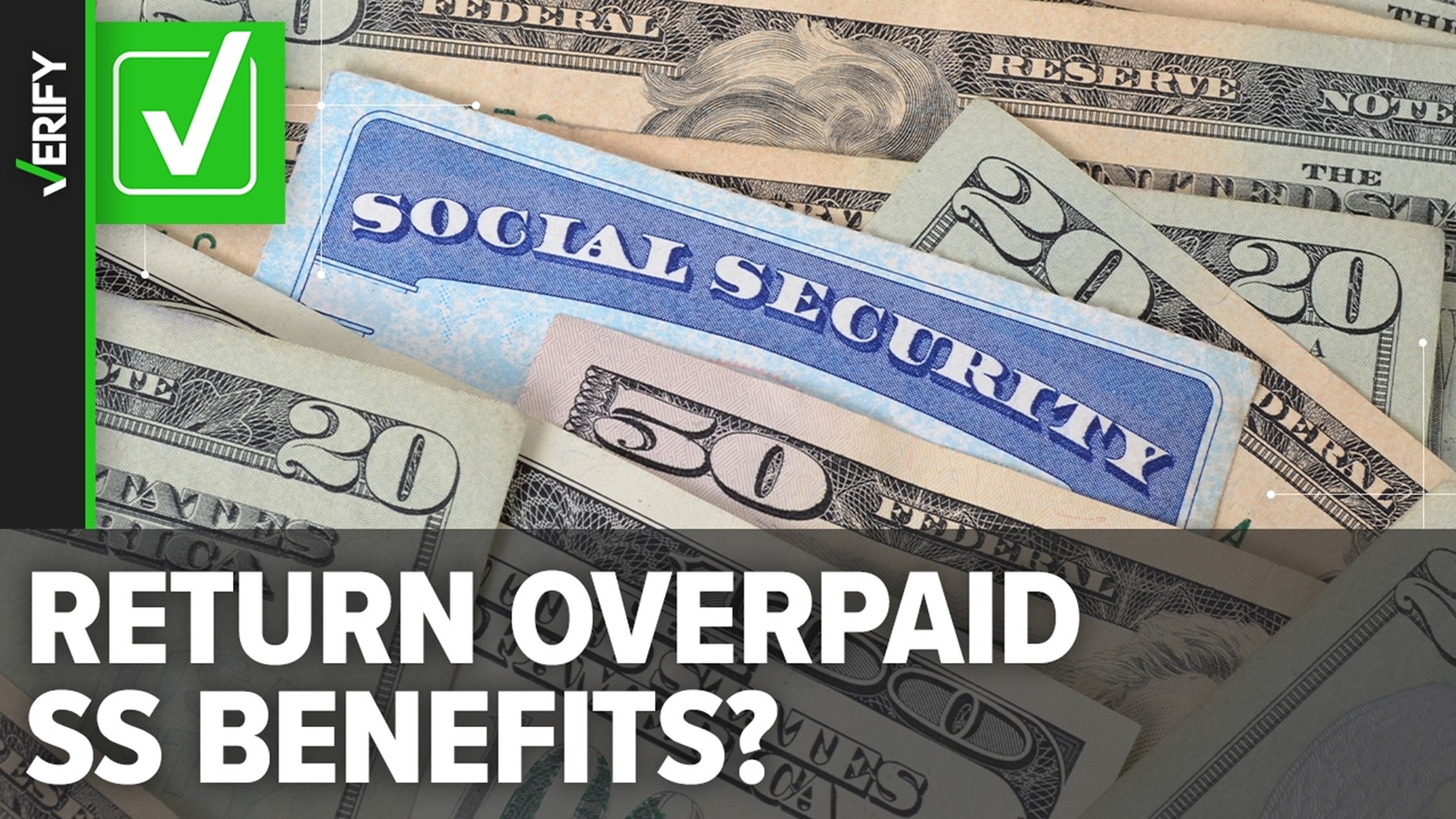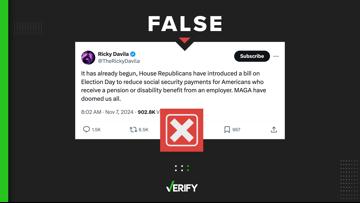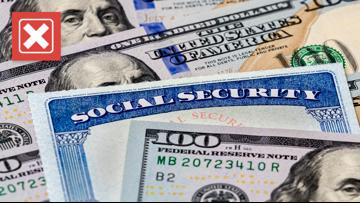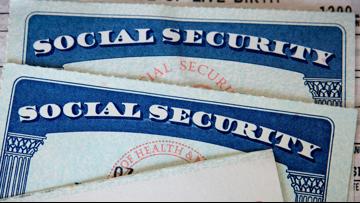Social Security benefits are payments made to qualified retired workers, people with disabilities and survivors of workers who have died.
Recent news stories warn Social Security recipients that the agency paid billions of dollars more than it should have in benefits and then demanded that money back.
VERIFY reader Diane texted us to ask if this can really happen.
THE QUESTION
Can Social Security require recipients to return overpaid benefits?
THE SOURCES
- Social Security Administration (SSA)
- The Social Security Act
- SSA Office of the Inspector General report
- Jack Smalligan, senior policy fellow with the Urban Institute’s Income and Benefits Policy Center
- Center on Budget and Policy Priorities
THE ANSWER
Yes, Social Security can require recipients to return overpaid benefits.
WHAT WE FOUND
The amount of money a person receives from Social Security is based on information the agency has about them, such as their earnings and assets.
Overpayments happen when Social Security recipients receive more money in their monthly benefit checks than they were actually eligible for.
This can happen for many reasons, including when someone does not report changes in their work circumstances that can affect their benefits, according to the Social Security Administration (SSA).
If a person has been overpaid, SSA says in a fact sheet it will send them a mailed notice explaining why the overpayment happened, the amount, and their appeal and waiver rights.
Social Security “is required by law to adjust benefits or recover debts” when a recipient receives more money than they’re supposed to, a spokesperson for the agency said.
SSA has been carrying out these rules, which are outlined in The Social Security Act, for decades, Jack Smalligan, a senior policy fellow with the Urban Institute’s Income and a Benefits Center, told VERIFY.
During fiscal year 2022, SSA recovered more than $4.7 billion in overpayments, according to a report by the agency’s inspector general. SSA had a balance of $21.6 billion in uncollected overpayments by the end of that same fiscal year, the report says.
The amount that a person might owe to SSA depends on how long they received benefits they weren’t eligible for and the program from which they receive benefits.
Overpayments more common within the SSI program
While overpayments can happen to people receiving Social Security retirement and disability benefits, they are more common within the Supplemental Security Income (SSI) program. This program provides monthly benefits to people with limited income and resources who are blind, disabled, or age 65 and older.
For the SSI program, overpayments represent about 7% of payments, the SSA spokesperson said. That’s compared to less than 0.5% for Social Security retirement, survivors and disability benefit payments, according to the spokesperson.
Recipients are required to report their monthly wages and changes in income from other sources to get monthly SSI payments. If any of those factors change, they can impact the amount of money a person is eligible to receive.
“Overpayments are much more common in SSI because there are so many different rules that beneficiaries must comply with, and many of those rules have not been updated for 20 to 30 years,” Smalligan said.
For example, SSA disregards the first $65 per month of earnings for SSI recipients, but each dollar of earnings above that amount typically reduces benefits by 50 cents, the Center on Budget and Policy Priorities explains. SSI recipients are also limited to only $2,000 in assets of any kind.
Options for people who receive overpayment notices
SSA handles overpayments “on a case-by-case basis,” the spokesperson said. The agency offers multiple options for repaying the overpaid benefits.
SSA can withhold the full amount of a person’s Social Security benefit each month. Full withholding begins 30 days after SSA notifies someone about the overpayment, according to the agency.
Social Security recipients can also request a lesser withholding amount that’s subject to SSA approval.
For SSI recipients, SSA will generally withhold 10% of the maximum federal benefit rate each month, though these recipients can also ask that the agency take less money from their monthly benefit.
SSA won't start deducting money from SSI payments until at least 60 days after notifying someone about the overpayment.
If someone becomes delinquent in their repayment agreement, SSA can garnish a person’s wages if they are working or recover the money from a person’s federal income tax refund, the agency says.
People who don’t agree that they’ve been overpaid, or believe the overpayment amount is incorrect, can file an appeal.
Recipients can also request that SSA waives collection of an overpayment. SSA only grants these waivers in limited circumstances when the overpayment wasn’t a recipient’s fault, and paying the money back would cause them financial hardship or would be unfair for another reason.










